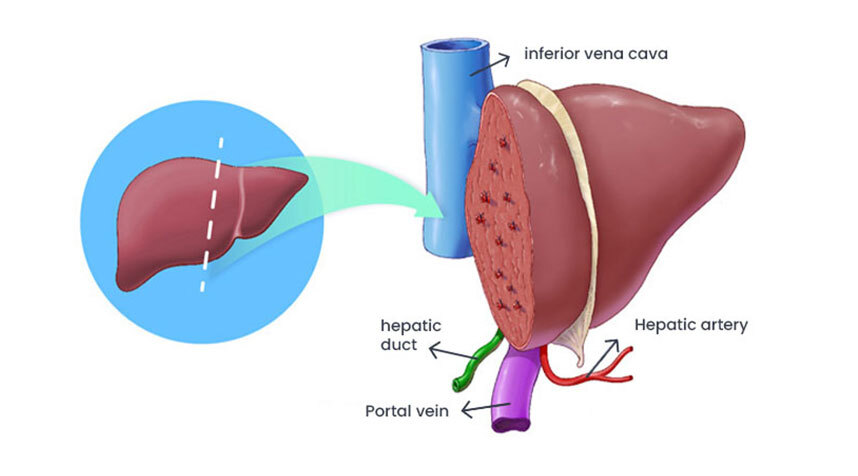
Overview
Liver diseases are often regarded as “silent killers” because most people do not even realize they have one. This often delays treatment. But, once you have been diagnosed with liver disease, you should discuss all treatment options with your hepatologist. Just ensure that your hepatologist has the right experience and skills to treat your condition.
If your disease has been caught at an early stage, you can still protect your liver from further damage by getting treatment at an accreditated hospital.
The treatment for liver disease is usually influenced by its type and progression. Your hepatologist can use any of the below strategies for combating liver disease.
1. Medications
Hepatologists can treat some liver diseases with medicines. For instance, the doctor will prescribe antiviral medications if you have chronic hepatitis B. Liver conditions like autoimmune hepatitis are also treated with drugs that suppress the functioning of your immune system. Additionally, creams can also be used to minimize itching caused by liver disease. Sometimes, when liver cirrhosis progresses, your liver may no longer be able to function properly. This can lead to several complications that need medical attention. These complications and their treatment include
-
Swollen or enlarged veins: Cirrhosis can cause swelling of the veins in the esophagus or stomach which can burst and lead to internal bleeding. To prevent this from happening, the doctor will give medicines to lower the pressure in your veins. If you have bloody stools or are vomiting blood, you should seek medical help immediately.
-
To reduce swelling because of accumulating fluid in the body, a low-salt diet with diuretics is recommended.
-
Cirrhosis can lead to problems like confusion, memory loss, and personality changes. This is called hepatic encephalopathy. The doctor will prescribe medications to clear the toxins from your brain. Liver cirrhosis can also increase the possibility of liver cancer called hepatocellular carcinoma. Since this cancer has similar symptoms to cirrhosis, you should get blood tests and an ultrasound every 6 months.
2. Lifestyle Changes

You can also adopt certain lifestyle changes to better manage your liver disease. Some of these are
-
In case of fatty liver disease, you should avoid foods that have high amounts of calories and fats. Instead, try to eat fiber-rich foods.
-
Avoid alcohol and smoking
-
Regularly exercise and monitor your weight
-
Eat a healthy and balanced diet since malnutrition is a common phenomenon observed in people with cirrhosis.
-
A low-salt diet can help in reducing the accumulation of fluid in your feet, and legs. Thus, preventing swelling.
-
Liver damage compromises the ability of the liver to store glycogen which provides energy. Due to this, muscle tissues are used as a source of energy between meals. This leads to weakness and muscle loss. Thus, you may require additional protein and calories in your diet which you can gain by munching on healthy snacks between meals or having 3-4 small meals daily.
3. Liver Transplant

If the liver disease is not diagnosed at the right time, cirrhosis can progress and damage your liver permanently. It can lead to liver failure. In such scenarios, a liver transplant is the only remaining solution. Your hepatologist will consider this option only if all other treatment options have been ruled out.
Avail Liver Transplantation Across the World
| Liver Transplant in Different Countries | Starting Cost in USD |
|---|---|
| Liver Transplant in India | $25090 |
| Liver Transplant in Turkey | $52710 |
| Liver Transplant in Thailand | $65000 |
| Liver Transplant in Singapore | $290000 |
| Liver Transplant in Israel | $350000 |
| Liver Transplant in South Korea | $250000 |
Conclusion
Getting treated at the right time is crucial to prevent the possibility of a liver transplant. Though cirrhosis cannot be cured, your doctor can still treat the conditions causing it.
If your area lacks adequate infrastructure to provide treatment then you can start exploring options in other countries. This way you can access the best treatment for yourself.
Just a little word to the wise- don’t delay treatment and adopt all necessary lifestyle changes to save your liver!
FAQ’s about Liver Disease Treatment
Usually, if your liver disease has progressed to the end stage then the damage to your liver is permanent and the condition can no longer be cured. However, in the initial stages, early diagnosis can help to stop the progression of liver disease.
Yes, the liver has a regenerative capacity that allows it to repair itself. However, when you drink alcohol, some of the cells of your liver die. The liver may develop new cells but excessive alcohol consumption over a long period can lead to the liver losing the ability to regenerate itself.
In case, the liver disease has led to liver failure then a liver transplant is the best treatment option.
People with liver cirrhosis usually have a reduced life expectancy. Patients with cirrhosis can be classified into the following categories :
Class A: They have the best prognosis and life expectancy of around 15-20 years
Class B: These have a life expectancy of 6-10 years
Class C: These people have a very poor prognosis with a life expectancy of 1-3 years
Cirrhosis is a late-stage liver disease. It is the stage where the liver has been permanently damaged. However, it can be treated with a liver transplant.
The post What are the Treatment Options for Liver Disease appeared first on MediGence.